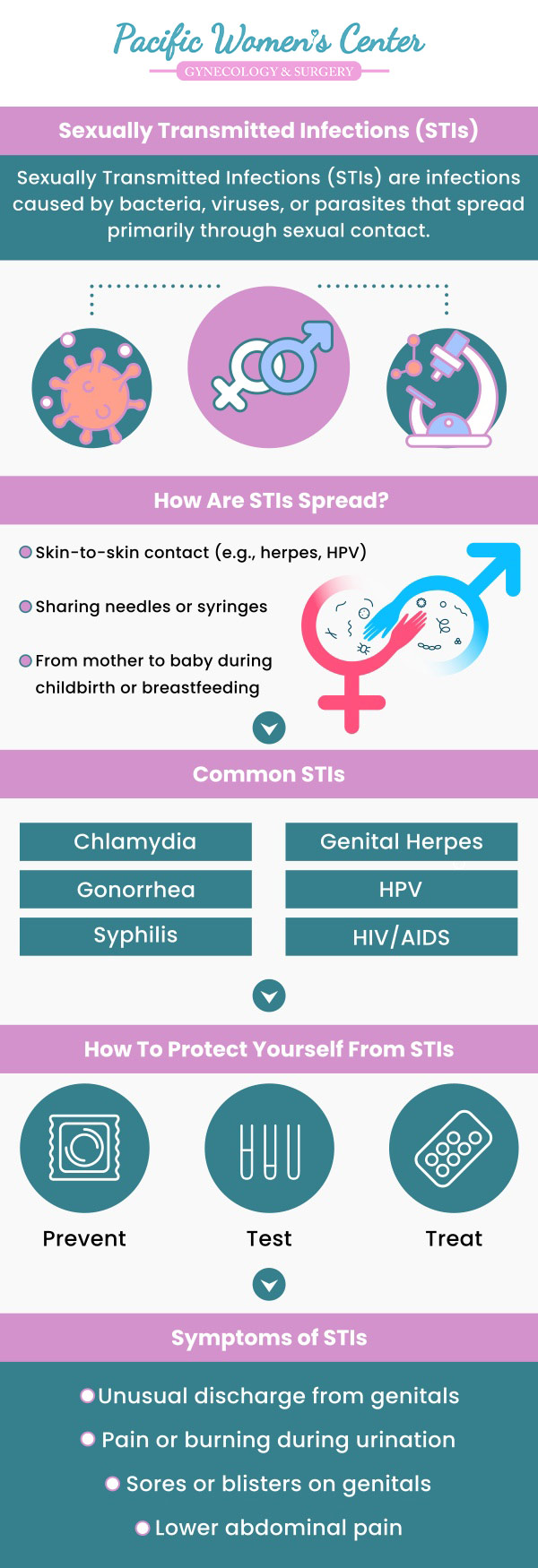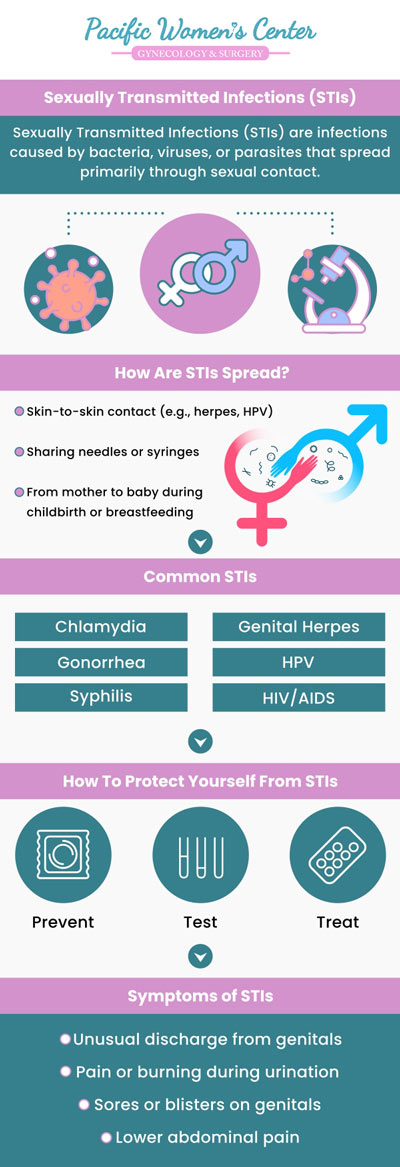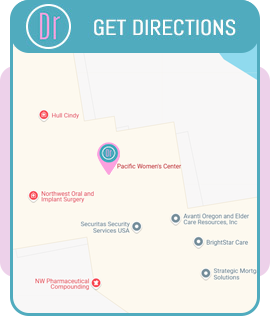Confidential STI Testing Clinic in Eugene, OR
STI testing is quite common, and many of them are entirely curable. Even STIs that cannot be completely cured can be managed effectively with appropriate medications to alleviate symptoms. Sexually transmitted infections can be passed from one person to another and impact your life. Dr. Richard Beyerlein MD, CPI, FACOG, and Tamara A. Stenshoel, MD, FACOG provide secure and confidential testing at Pacific Women’s Center. For more information, contact us or schedule an appointment online. We are conveniently located at 911 Country Club Rd. Suite 222, Eugene, OR 97401.




Table of Contents:
What is sexually transmitted infection?
What causes sexually transmitted infections?
How do you get rid of a sexually transmitted infection?
How long will it take to get results?
Sexually transmitted infections (STIs) are infections or ailments that can be contracted through various forms of sexual contact, involving the mouth, anus, vagina, or penis. These infections are typically transmitted between sexual partners during unprotected sexual intercourse.
They are highly common, and many infected individuals may not exhibit any noticeable symptoms. Untreated STIs can potentially lead to severe health complications.
STIs can be attributed to either viral or bacterial agents. Viral STIs encompass infections such as hepatitis B, herpes, HIV, and human papillomavirus (HPV). Bacterial STIs, on the other hand, include chlamydia, gonorrhea, and syphilis.
STIs can be transmitted through various sexual activities, including sexual intercourse, oral sex, and other forms of sexual contact. Ejaculation is not required for an STI to pass from one person to another. If you have engaged in sexual activity at any point in your life, you may be at risk of contracting an STI.
Several factors can increase your risk of getting an STI, including having multiple sexual partners, engaging in sexual activity with someone who has had multiple partners, or having sex without using condoms.
To reduce your risk of contracting an STI, it’s advisable to have sexual relations only with a partner who is not sexually active with others and is free of any known STIs.
Proper and consistent use of male latex condoms during sexual intercourse can also help lower your risk of getting an STI. Additionally, maintaining good genital hygiene by washing with soap and water after sexual activity and urinating soon after sex may help remove some potential germs before they have a chance to cause an infection.
Once a person is infected with an STI, they can transmit the infection to others through oral, vaginal, or anal sex, even if they do not display any symptoms of the infection. Therefore, practicing safe sex and getting regular STI screenings are crucial for sexual health.
STIs are quite common, and many of them are entirely curable. Even STIs that cannot be completely cured can be managed effectively with appropriate medications to alleviate symptoms. The treatment for STIs may vary depending on their underlying causes, as bacterial STIs are generally more responsive to treatment than viral ones.
Bacterial STIs can typically be cured using antibiotics, especially when treatment is initiated promptly.
Antibiotics, often administered as a single dose, have the potential to cure various bacterial or parasitic STIs, including syphilis, chlamydia, among others.
In contrast, viral STIs cannot be completely cured, but the symptoms can be managed through the use of medications. It’s important to note that when diagnosed with an STI, you should inform your sexual partners about your infection so that they can seek appropriate treatment if necessary. Failing to treat your partners can result in the spread of the STI or even reinfection for yourself.
If you’ve been treated for an STI, it’s advisable to consult with your healthcare provider regarding the recommended timeframe for retesting after treatment. Periodic retesting helps ensure that the treatment has been successful and that you haven’t been reinfected.
The majority of screenings for STIs are relatively quick and can be completed in a matter of minutes. Your healthcare provider might be able to provide an immediate diagnosis for some STIs if symptoms are present, although certain tests may require a few days or even weeks for the results to be processed at a laboratory.
Different STIs necessitate distinct testing methods, which can influence the timeframe for receiving results. Depending on the specific STI you’re being tested for, your healthcare provider may use methods such as swabs, urine tests, or blood tests.
The choice of testing method can impact the duration of time it takes to obtain results. For example, urine and swab tests typically yield results within about a week, whereas blood tests may take two weeks or even longer to provide results.
STI screening is available at Pacific Women’s Center. For more information, please contact us or book an appointment online. We are conveniently located at 911 Country Club Rd. Suite 222, Eugene, OR 97401. We serve patients from Eugene OR, Springfield OR, Coburg OR, Creswell OR, Cottage Grove OR, Lowell OR, Junction City OR, and surrounding areas.

ADDITIONAL SERVICES YOU MAY NEED
❱ Abdominal Hysterectomy
❱ Bladder Lift Surgeon Q&A
❱ Cervical Cone Biopsy
❱ Colposcopy
❱ Endometrial Ablation
❱ Endometrial Biopsy
❱ Female Sexual Dysfunction
❱ Gynecological Surgery
❱ Gynecology
❱ Hormone Therapy
❱ Vaginal Hysterectomy
❱ Endometriosis Diagnosis & Care



